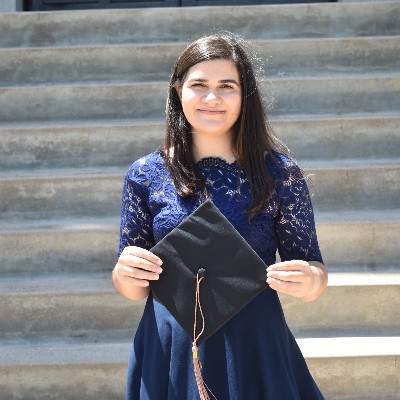Kukana ini
Kachi me matzanu ña kukana
kukana vasa yee nuu ntí’í,
anima ntachí nuu yùcha,
nuu anima kuaku ra kuaku
ra koo tsikuiin.
Koi tachi nakoo
ichi yu’u
ra tutsi ntaa.
Kukana lasu me ini
ke’e me sukú ra koo kunche kusu.
Stata kukana:
kuchi arnica chikui,
kuchi alcohol,
kuchi iín chikui,
na nuun na nikai
ntuchinuu,
ntaa
ra nchacha.
On Sadness
My grandma used to say that when sadness
seems to have no end,
it’s likely that our soul has fallen off
in the river,
that is why it cries and cries
and it cannot be stopped.
We are missing air,
our mouth gets dry
and our hands hurt.
It seems that sadness has attached to us,
it grabs us by the neck and we stop dreaming.
To cure it:
baths with agua de arnica,
baths with alcohol,
baths with agua salada
to relieve our swelling heart,
the eyes,
the hands
and the wings as well.
Kue’e tachi
Yu’u kuaki’vi kue’e tachi,
kinuú tokó me ra ke’e me tsa’a.
Kumani savi.
Me pa kachi ñá’an koi iin má’na,
yee kutu’uu staa ra cafe
yee kutu’uu mee koi kachi.
Me pa kachi koo chaa ñá’an
mee nanalu kuaku koo ña’an,
nutsikaá ra yu’ú.
Vichi kachi me siví antivi,
mee saa ñá’an,
ntiki tsaa.
Tu’un me nchacha
me ñu’ú vixo.
Bad Wind
The bad wind entered my body through the mouth,
it went through my hips and touched my feet.
We need more rain.
My father says that us women don’t dream,
that we should learn how to make tortillas and coffee,
that we need to learn to keep silent.
He says that no women should write,
I am the girl who cries the absence,
the distance and the fear.
Today I say my name proud and loud,
I am a bird women,
a seed that blooms.
The words are my wings,
mi tierra mojada
Ñá’an
Ixi xiniku chico xikui, telimu ra cafe,
tokoku yucha ku’na ichi
nuu ncha’í, ntaa.
Nuni chico ntuchinuu
yó’ó vixo ñu’ú, savi, nikanchii ra tachi.
Ñá’an ntuxi xachí, sata yutu ntakui,
víkò nuxaxa, antivi sesi’i.
Kachi ñá’an tu’un,
ra kuntukú ntaa-yo’o
ra nuxaxaku vichi vixo.
Koo kuntukú ntúú,
vichi kusuyu nuu ñu’un yu’uku,
ncho’o ñá’an.
Woman
Your hair smells like milk, lemongrass tea, and coffee,
your hips are rivers that open paths
toward the unknown, toward what is true.
The smell of corn is in your eyes,
you are tierra mojada, rain, sun, and wind.
Sex of honey woman, strong tree on your back,
womb of cloud, daughter of the sky.
I say the word woman,
while I look for your root-hands
and your womb is now wet.
I won’t look for the sunrise,
today we will sleep in the fire of your mouth
hummingbird woman.
Ñu’ú
Ntuchinuu nchi’ìna yaa ita
kaku titxi nchu me yu’u.
Ntuchinuu kachi yu
anga in yavi chikui, in yucha
in ntúcha
kusani yó’ò kaku.
Kusani —in sientu kachi yuu—
Kási me toko,
koo ke’e, skeé ntuchinuu yó’ó
kási yoo chikui
kuaki’vi me xaa
me nuxaxa,
me ntozoo
ra, me ntuchinuu.
Vichi kunche mee, yucha ntuchinuu
tzi koo xikanyooa,
ntuchinuu yó’ó kunche
yó’ó tsaa nuu me sata chico
ña kúnú ñu’u ra kaku in ini.
Earth
With your eyes you planted white flowers
that blossom from my stomach to my mouth.
Eyes where I assure there is a deep hole, a river,
a sea
in which you continually bring life.
Several times—like a hundred I would say—
I have felt that my hips
have submerged in them—even without touching you—
feeling how your water
penetrates through my feet,
my womb,
my breasts,
and, of course, my eyes.
Now I do know, you have river eyes
and I don’t say it due to how fast they move,
but because when they look at me
you create an aroma from myself
that entangles with the world and gives life
Translated from Tu’un Savi to Spanish by Nadia López GarcíaTranslated from Spanish to English Edith Santos Sevilla as part of
a translation course taught at St. Mary’s University in San Antonio, Texas
by LALT Indigenous Literature Correspondent Christian ElgueraFrom the collection Ñu’ú vixo / Tierra mojada (2018)





